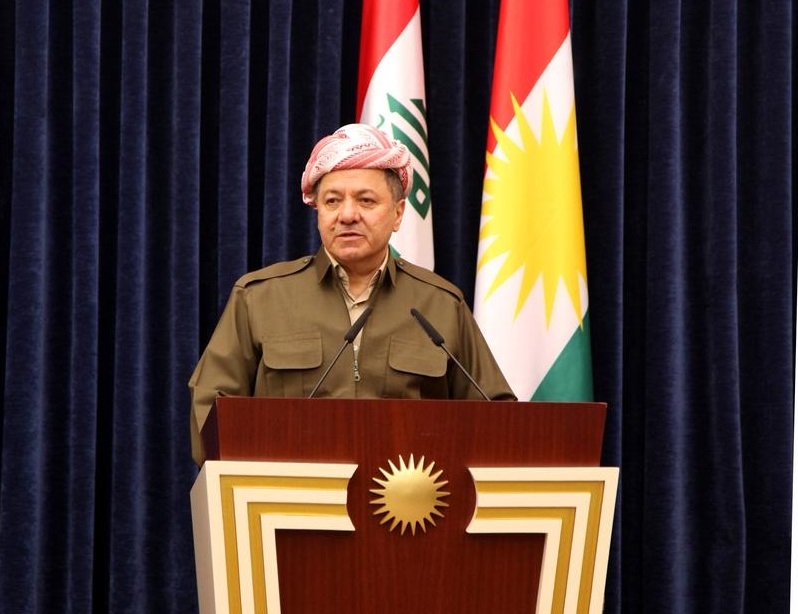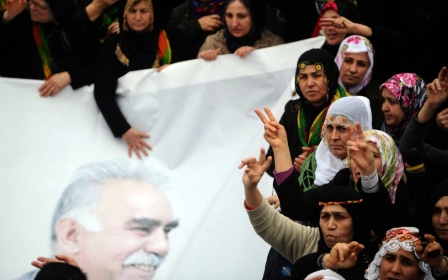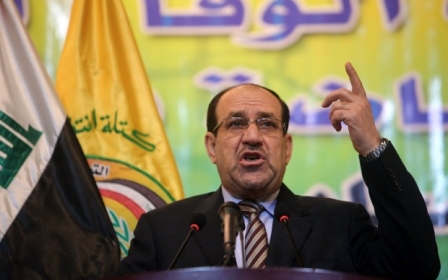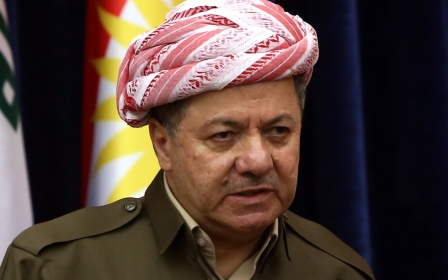Not all Iraqi Kurds welcome Israel's support

ERBIL - Israel is the only country that has voiced public support for Kurdish statehood. But not all Kurds are too keen on being seen as a ‘second Israel’ in an area surrounded by Arab states and amid the ongoing conflict between Palestinians and Israel. Some Kurds worry that Israel’s support for the Kurds could translate into suicide attacks and threats from Iran.
Israeli officials such as Israeli Prime Minister Benjamin Netanyahu this month endorsed Kurdish aspirations for Kurdish independence. Israel traditionally has had a policy of building relations with non-Arab states in the region in the 1950s, but this policy failed due to the Islamic revolution in Iran in 1979, and the breakdown of relations between Turkey and Israel. As a result they moved closer towards Cyprus, Greece, and Azerbaijan.
Before the Islamic revolution, the United States, the Iranian Shah and Israel backed the Kurdish revolution against the Iraqi government until the Iranian government betrayed the Kurds and signed a deal with Saddam Hussein in 1975. Moreover, many Kurds suspect Israel helped Turkey in capturing the Kurdistan Workers Party leader Abdullah Öcalan in 1999.
Israel sees the Kurds as a valuable ally against Iran, and any weak Arab state would benefit Israel in the region. The Iraqi government in Baghdad is closer to Iran and does not endorse any relations with Israel. Many Kurd civilians are sympathetic towards Israel, as a country being surrounded by Arab enemies, just like the Kurds face Arabs in Baghdad.
Despite the dangers, there is wide political support for relations between the Kurdish government in Iraq and Israel, although there are no official relations with Israel and the Palestinian consulate in Erbil, the capital of the Kurdistan region.
“I am saying this as a member of an Islamic party. All Arab countries have some form [D3] of relationship with Israel. Israel keeps attacking Sunni Arab areas in Gaza, and none of them are doing anything. It’s easy to stop that. If Kurdistan becomes a country, it will deal with the rest of the world based on its interests. There is no red line,” said Mariwan Galali, a Kurdish MP of the Kurdish Islamic Group.
“The late [Mullah] Mustafa Barzani said, we are a beggar in front of a mosque. We would welcome any donation for Kurdistan independence, without anything in return,” said Haji Kamaran, a Kurdish member of the Islamic Union of Kurdistan.
But the landlocked Kurds that are surrounded by Muslim neighbours do not benefit from Israeli support in a hostile region. Especially now when there is a conflict between Palestinians and Israel which has enraged the Muslim community during the Islamic fasting month of Ramadan and the ongoing reports that the Kurds sold oil to Israel.
The Kurds now have an unofficial 1,000 km border with militants of the al Qaeda offshoot, the Islamic state (IS), and official border crossings with Iran.
Kurdish MP Ari Hershen from the Kurdistan Democratic Party (KDP) recognized the difficulties of the geographical situation of the Kurds.
“It is a great challenge for Kurdistan’s independency. At the same time, Israel has problems with Iran, and Iran is our neighbour. It is a very delicate situation, but I think that in the near future the relations between Iran, the United States, and Israel will go further in a positive reaction. Especially under the leadership of [Iran’s president Hassan] Rouhani.”
The IS militants could use the Israeli public support to try to justify their attacks against the Kurds. On 12 July, at least 19 people were killed and 28 wounded in twin bomb explosions in the Kurdish controlled city of Kirkuk.
In the past, al-Qaeda justified similar attacks citing Kurdish support for the US overthrow of Saddam Hussein in 2003. In 2007, senior al-Qaeda leader Sheikh Ayman al-Zawahiri accused the Kurds of supporting a Crusader-Zionist occupation in Iraq.
“If Kurdistan works with Israel, they will accuse us of being Jews, and all the Jihadists from Egypt, Morocco, and other countries will come to Kurdistan to fight us. We don’t have any problem with Israel, but Kurdish independence is our right,” said Abdulaqadir Zaxoli, a Kurd who sells tires in the local market.
Iranian officials fiercely opposed the Israeli statements and the Kurdish calls for independence and suggested that they would never allow Netanyahu’s dreams to disintegrate Iraq materialize.
“Given the recent position taken by Netanyahu on supporting the Iraqi Kurdistan’s independence, any steps taken in this regard will implement the Zionist regime’s special goals in the region,’ Chairman of the Iranian parliament’s National Security and Foreign Policy Commission Alaeddin Boroujerdi said .
Iran's Foreign Ministry Spokesperson Marzieh Afkham said that Iran would never allow Iraq to disintegrate and supports the unity and integrity of Iraq.
“Undoubtedly the vigilant Iraqi people will not allow the Zionist regime and enemies of a unified Iraq to carry out their plots and realize their immature fantasies in the region,” Afkham noted.
Iran could increase their support for the Iraqi government against the Kurdistan Regional Government, block the Iranian border with the Kurdistan region or decrease water flows to the Kurdistan region of Iraq.
Moreover, any Israeli relations with the Kurds could endanger relations with Turkey.
“Israel woke up our neighbours. The Israeli statement is very dangerous. If Turkey or Iran closes the border, we are finished. We would not be able to export oil to Turkey, and our food comes from Iran and Turkey,” said Azad Harouti (35), a Kurdish lawyer.
On 7 July, the Kurdish NRT TV station reported the Iranian government decided to change the direction of a river that is the source of water for the Dukan lake in the Sulaymaniyah province.
Kurdish veteran politician and former Iraqi MP Dr. Mahmoud Othman told Middle East Eye that Israeli support is not beneficial for Kurds.
“It’s not good when they say this. Practically they can do nothing for the Kurds because they are geographically away. Moreover a lot of Arab countries, Islamic countries, Iran, maybe even Turkey would have a negative reaction. I think Kurds will not benefit from this and it would be better if they [Israelis] don’t talk about it.”
Thus many Iraqi Kurds would welcome any Israeli support they would prefer them to keep it secret.
Middle East Eye propose une couverture et une analyse indépendantes et incomparables du Moyen-Orient, de l’Afrique du Nord et d’autres régions du monde. Pour en savoir plus sur la reprise de ce contenu et les frais qui s’appliquent, veuillez remplir ce formulaire [en anglais]. Pour en savoir plus sur MEE, cliquez ici [en anglais].




